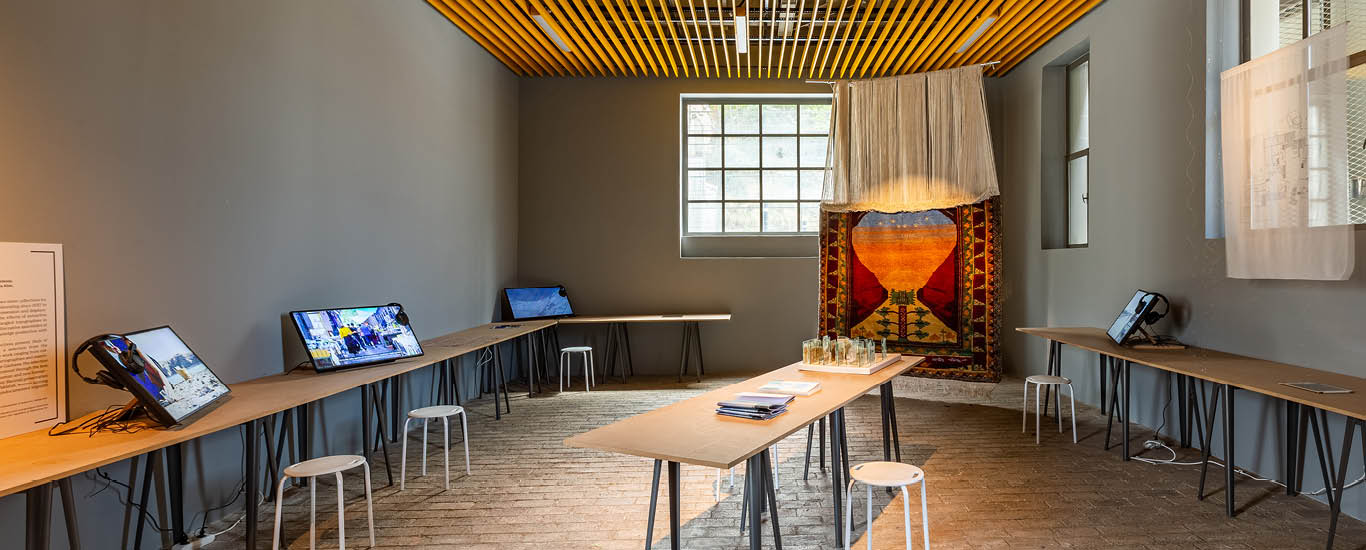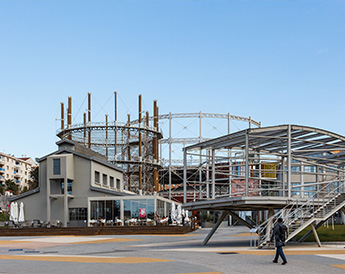Arazi Assembly: Zeynep Sıla Akıncı, Ruken Aydoğdu, Özge Çelikaslan, Leyla Keskin, Yelta Köm, Mezra Öner, Merve Gül Özokcu, Yıldız Tahtacı, Pelin Tan, Agit Ozdemir, Ekoloji Derneği, GaiaEkoloji and Topological Atlas: Nishat Awan, Yelta Köm, Zahra Hussain, Lena Saraj, Ishita Sharma, Asim Rafiqui, Atelier Cartographique, İlke Şanlıer Yüksel
With contributions from Laajverd, Zahra Malkani, Second Practice.
Arazi Assembly (estd. 2014, Mardin, Turkey) is a collective founded by independent researchers from architectural and artistic backgrounds that runs and produces field research within the framework of critical spatial practices and geontology theory. Arazi uses art and design methods such as autonomous archiving, relational phenomenology, action research, alternative pedagogies, critical mapping, and video experimentation. Producing collective knowledge and experience on the metamorphosis, analysis and mapping of extractivist topographies, the Arazi members, in their biennial participation State of Displacement: Entangled Topographies, present a mixed-media visual and textual documentation about villages in Hasankeyf and by the Tigris that were forcedly displaced after submersion; about the dispossessed female farmers and foragers who are based in the Tigris basin; about the narratives of displaced communities like undocumented, transboundary migrants, and commoning practices of resistance in urban/rural areas.
Topological Atlas (estd. 2018) is a long-term project focusing on undocumented migration, border regimes and their visual representation. It explores ideas around affective witnessing, incalculability and opacity in relation to the circulations and unsettlements of migration through combining fieldwork with digital methods of mapping and modelling. The research considers the relationship between neocolonial practices and cartography through the role of resolution in machinic vision and the deeply embedded idea of the impermeability of the Earth’s surface in relation to maps. The project is concerned with the material, affective and atmospheric qualities of borders, and develops a mapping practice that makes room for the faint web of sedimented relationalities that endure in place and support the fragile movements of the undocumented.








